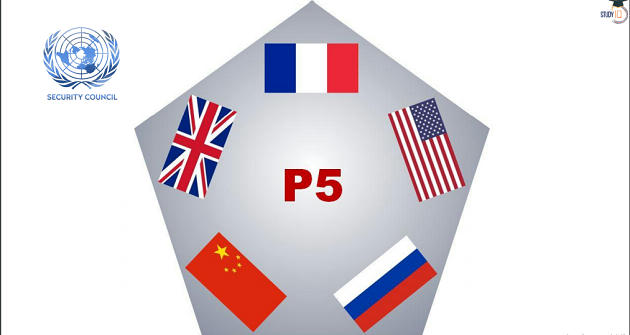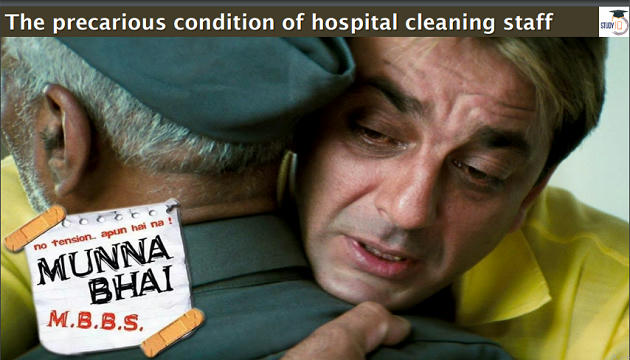Table of Contents
Defending India’s tech sovereignty [ToI]
- As citizens, our actions belie our feelings.
- China’s near-complete domination of India’s consumer electronics market.
- Profit from India is enough to fund China’s entire military expenditure on the Indian border.
- Banning 59 Chinese apps is a significant statement of intent by GoI.
- Section 69A of the Information Technology Act allows the government to block access to any content on the internet if protection of Indian sovereignty requires such blocking.
- China’s national intelligence law: every technology company in China is under a legal obligation to “assist and cooperate with state intelligence”.
- China’s cybersecurity law: all companies “must accept supervision from the government”
- Feb 2020, TikTok’s updated its privacy policy
- Allows the company to take large amounts of data of Indians including metadata pertaining to location, mobile carrier, browsing history and share it with law enforcement, including in China.
- We need to do more to launch India to global technology leadership.
- To chat, we use WhatsApp, an American app
- To make video calls we use Zoom, an American company owned by a Chinese-origin American
- Even to block the 59 Chinese apps, the Indian government was reliant on Google and Apple to take these apps off the Play Store and AppStore respectively.
- Had there not been the tacit support of the US government in this action, scarcely would the ban have been so effective so quickly.
- Solar and battery energy
- Consumer electronics
- AI
- Indigenisation of these sectors
- World beating quality and price
- Solar and battery are now sufficiently low-cost to match oil and coal.
- It starts with energy self-reliance.
- Consumer electronics: SoC (system on a chip)
- India has some of the finest SoC designers in the world.
- Create Atmanirbhar Grand Challenge, hunt the best.
- Turing award winner Raj Reddy, always meant AI to bring parity to all 7 billion of us.
- AI that serves India’s civilisational ethos of inclusion.
- Ultimately, in technology as in the economy, we need to learn from our soldiers on the front. We need to steel ourselves for a few years of hardship with knowledge and belief that we will overcome.
A much-needed reset [IndExp]
- 2020: lives changed by the Chinese-origin COVID-19 virus
- 2020: world at large and India reset their relations with China because of its actions.
- For decades, China has grown and profited from the world, with little or no scrutiny.
- China has supported states with ties to terror.
- Chinese technology sector is based on illegally stealing and proliferating technologies from the West.
- As our exports remained flat, imports from China steadily surged — displacing Indian manufacturers and jobs.
- China’s next focus was on the IT sector.
- One of the world’s largest connected economies as internet penetration approaches one billion.
- As start-ups and innovation flourished under Digital India, Chinese investors quickly cornered a major stake in 18 out of India’s top 30 Unicorns.
- China is taking advantage of our weak privacy and data protection regulations.
- A recent report states: “Chinese funding to Indian tech start-ups is making an impact disproportionate to its value, given the deepening penetration of technology across sectors in India. These are investments made by nearly two dozen Chinese tech companies that have funded 92 Indian start-ups. China is embedded in Indian society, the economy, and the technology ecosystem that influences it.”
- Free-pass to China in technology was dangerous for democracies.
- China had it pretty good not just in India but around the world.
- The lack of intellectual property laws and general contempt for international law in China made it difficult for Chinese companies or individuals to be held accountable until the recent Huawei prosecution in the US.
- In 2010-2011, China moved the UN to wrest control away from the multi-stakeholder non-governmental organisation, ICANN, to a UN organisation called UN-CIRP staffed with government nominees.
- This reset of the India-China relationship will undoubtedly create short-term disruptions.
- India is the world’s biggest and most strategic consumer tech market.
- India needs tougher privacy and data protection regulation.
- All Indian Unicorns thus far have been foreign-funded.
Private railways [ToI]
- Indian Railways has decided to invite private sector participation in running passenger trains.
- 5 years ago: Bibek Debroy committee laid out a road map to usher in private participation.
- Railways announced a plan to invite participation for 109 pairs of routes.
- Operational rights for 35 years.
- Pay Railways for the use of infrastructure and share a part of gross revenue.
- The likely investment will be Rs 30,000 crore.
- Competition benefits for consumers
- Railways today runs on the basis of cross-subsidies and budgetary support.
- Passenger services are subsidised by freight earnings.
- Railways needs to clean up its accounts.
- Clear division between the part of Railways which will own and operate common infrastructure, and the section which runs trains.
- India’s post-1991 experience shows that a capable regulator and architecture that avoids conflicts of interest are critical conditions to enable successful private participation.
In an uncertain world, a seat at the global high table
- United Nations Security Council
- From January 1, 2021, India will be back at UNSC for 2 years.
- It is hoped that by then
- COVID-19 will have subsided
- A U.S. President will have been elected
- Contours of a new world order may have emerged
- India is serving for the eighth time and has a record of contributing to some of the seminal resolutions of the UNSC.
- Expansion of the UNSC.
- India’s reputation for taking balanced positions and consensus building will be welcomed by the other members.
- ELECTION: Voting in the General Assembly is to fulfil the requirement of countries having to secure a two-thirds majority of the member states.
- Out of the 192 votes cast, India got 184 and no one will ever know the eight countries that did not vote for India.
- Though India’s success was assured, the new Permanent Representative of India, T.S. Tirumurti, who has a formidable reputation for multilateral skills, produced an impressive multimedia presentation with memories of India’s sterling role in the annals of the UN.
- How far the UN will be able to reform itself in the new situation remains uncertain.
- Comprehensive Convention on International Terrorism
- Counter-terrorism will be one of the highest priorities for India at the UNSC.

- India’s performance in the Council may earn it respect, but it will not lead to its elevation to permanent membership as the opposition to any expansion is not India-specific.
- India’s mission in New York has earned a reputation that it is next only to the permanent members in influence.
- But whether it will be able to deal with traditional challenges in novel ways will depend on the turns and twists in an uncertain world.
India’s torture culture needs to end now
- We are living with a completely broken system of law enforcement.
- Tamil Nadu police has acquired notoriety over the decades for employing torturous methods for law enforcement.
- During my tenure as Chief Justice of the Madras High Court, several cases in this regard were brought to the court.
- Torture is part of police culture.
- The official position on state-sponsored or state-endorsed torture can be seen in a 2017 quote by India’s then Attorney-General.
- In his opening speech in Geneva at the country’s universal periodic review at the United Nations Human Rights Council, the Attorney-General invoked Gandhi and Buddha, stating that “India…believe[s] in peace, non-violence and upholding human dignity. As such, the concept of torture is completely alien to our culture and it has no place in the governance of the nation.”
- This would be a textbook example of hypocrisy, if ever.
- Torture is endemic and a systemic problem.
- India signed the UNCAT in 1997, it is yet to ratify it.
- In 2010, a weak Prevention of Torture Bill was passed by the Lok Sabha, and the Rajya Sabha later sent it to a Select Committee for review in alignment with the UNCAT.
- This rejection was a sign of the Supreme Court turning its back on its own glorious jurisprudence, and its efforts to aid law-making in the past.
- #EndTortureToday Neither the Home Ministry nor this government is likely to take up the torture law.
- Days after George Floyd was killed in Minneapolis in the U.S., when a policeman held him in an 8-minute-46-second-chokehold, the #BlackLivesMatter movement emerged, with many Indians joining in too.
- The movement, led by the people, started a national debate in the U.S. on policing, including radical reforms such as defunding and disarming the police.

NEWS
- Defence acquisition
- Defence Acquisition Council ( DAC) in its meeting held yesterday accorded approval for Capital acquisitions of various platforms and equipments required by the Indian Armed Forces.
- Proposals for an approximate cost of 38900 Crore rupees were approved.
- The meet chaired by Defence minister Rajnath Singh focused on indigenous design and development.
- The equipments are to be manufactured in India involving Indian Defence Industry with the participation of several MSMEs as prime tier vendors.
- The Indigenous content in some of these projects is up to 80 per cent of the project cost.
- The Health and Family Welfare Ministry has issued revised guidelines for home isolation of very mild, pre-symptomatic, asymptomatic COVID-19 cases.
- Drug Discovery Hackathon 2020
- Human Resource Development Minister Ramesh Pokhriyal Nishank and Health Minister Harsh Vardhan have jointly launched the Drug Discovery Hackathon 2020.
- It is an online competition and anybody from anywhere in the country or world can participate.
- Drug Discovery Hackathon is first of its kind national initiative for supporting drug discovery process.
- ‘Mobile Masterjee‘
- COVID-19 has brought the education system, particularly the classroom teaching to a standstill.
- The students in rural India are hit maximum by this. To solve this problem IIT Kanpur has developed a classroom-to-home teaching setup that can record the lectures or instructions by the teachers while using their available smart phones.
- It is named ‘Mobile Masterjee’, which is a classroom-to-home teaching setup and will be very helpful to the students in rural India.
- The government’s flagship program Fit India is launching a series of interactive sessions with some of the top sports persons of the country intended to inspire the school children.
- Noted Bollywood choreographer Saroj Khan passed away early this morning due to cardiac arrest.
- She was 71.
- Saroj Khan was admitted to Guru Nanak Hospital at Bandra, in Mumbai on June 17 following breathing problem. She had severe diabetes and related illness.
- She had tested negative for coronavirus.
- Saroj Khan has been laid to rest at a cemetery in Malad, in Mumbai.
- US President Donald Trump has blamed Chinese aggression for the stand-off at the India-China border.
- In Myanmar, at least 162 people have been killed in a landslide at a jade mine in northern Kachin province.
- India’s first plasma bank for Covid treatment opens in Delhi
- India’s trade deficit with China dips to 48.66 billion dollars
Download Free PDF – Daily Hindu Editorial Analysis






















 WhatsApp
WhatsApp